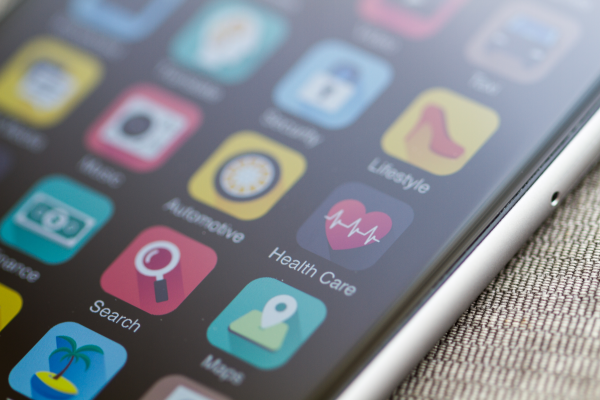The smartphone could turn out to be one of the most significant medical devices ever made, according to Jared Watkin, senior vice president of Abbott Diabetes Care.
Mr Watkin spoke with HealthDispatch ahead of today's official launch of an app for the company's FreeStyle Libre glucose monitoring system.
The app, available for iPhone and Android, enables people using the system to access their glucose data directly from their smartphones. This eliminates the need to carry the separate handheld FreeStyle Libre reader.
It also enables people to share their glucose data with their healthcare professional through a cloud-based diabetes management system. This will be extended in the future so people can share their data with family and caregivers.
Australia is the first country outside Europe to gain access to the app and comes as the federal government moves closer to funding the FreeStyle Libre. The technology has been under evaluation for funding through the National Diabetes Services Scheme with an announcement anticipated this year.
Mr Watkin, the global commercial leader of Abbott's diabetes business, previously led its research and development division where he played a key role in the decade-long development of the FreeStyle Libre.
He said the rapid global success of FreeStyle Libre since its launch was ironically built on the back of product failure.
The company's first continuous glucose monitoring system, the Navigator, was officially discontinued earlier this decade. According to Mr Watkin, having a great technology does not always translate into commercial success.
"There was very strong chemistry behind the Navigator but it was not a great product.
"Having great technology does not always translate into a great product," he said."It was not user-friendly because it was difficult to use. It was large and cumbersome to wear. Users had to calibrate the sensor twice daily. It was difficult to manufacture and that made it expensive for payers.
"We took a look at it and it was a real fork in the road. Do we continue? It was not a straightforward decision. The technology was strong but we had to make it more user-friendly and easy to manufacture."
Mr Watkin said "lessons were learnt" and, "in some ways, these are the failures you sometimes need to experience in the process of incremental innovation."
A key difference with Freestyle Libre is that it is calibrated once in the factory, rather than requiring patients to calibrate it multiple times per day. "This has made a huge difference," he said.
"Importantly, technology is nothing without access. It is approved in over 45 countries and reimbursed in around 20. We are hopeful and looking forward to achieving reimbursement in Australia.
"It is a disruptive technology and the app is a key part of that. It demonstrates how the world of medical devices is intersecting with electronic devices.
"Digital health is becoming a reality with smartphones the hub. It is one of the greatest breakthroughs in recent years and smartphones will probably be considered one of the greatest medical devices of all time."
Mr Watkin said innovation is constant and the future will probably see patients using their smartphones to monitor their glucose and control their insulin device. "The linking of devices will make a huge difference for patients."
"There is the obvious advantage for healthcare professionals, who can monitor their patients remotely, but also payers. This technology has significant potential from a data perspective because it opens up the world of population-level data. We have already published data from 250,000 people worldwide. We are using the insights gathered to get a sense of how well the product is working in the real world."
